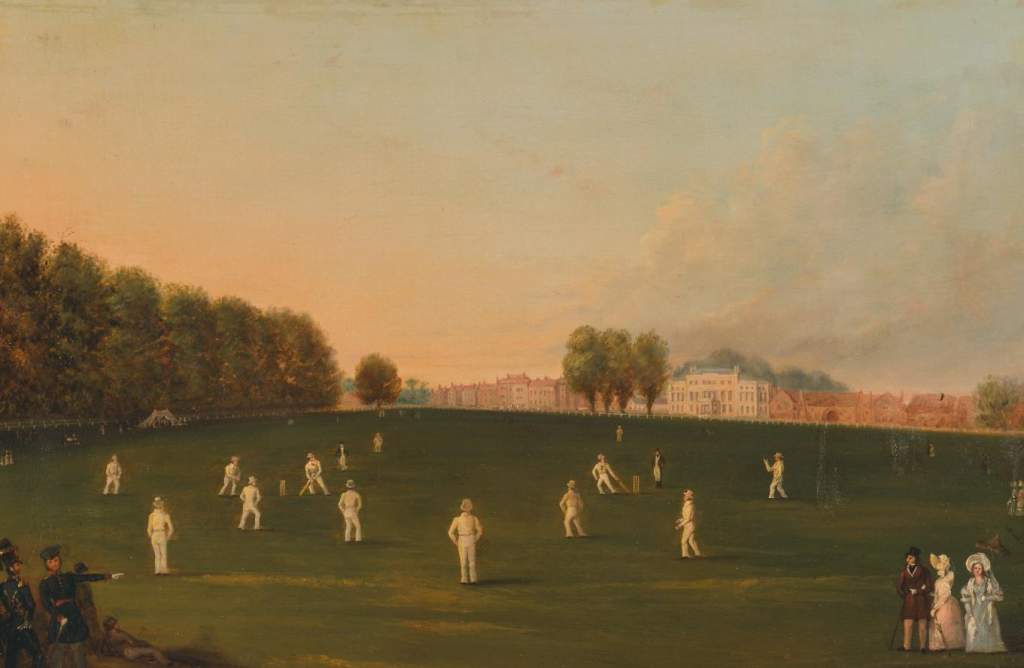I hope you will enjoy an editorial article in TOI on the Simla Cricket Club match on October 29, 1886. Those who deplore the decline of cricket before the advance of lawn tennis will be glad to hear that the waning fortunes of the superior game are being retrieved at Simla. In another place will be found an account of a game of cricket at Simla, where the ladies played against the gentlemen, and showed such determination as to cause the gallant Major to retire from the field” much hurt.”
When the ladies combine to support a game, its success is certain, and we are sure that those who advocate cricket will not be so ungallant as to express their opinion on the game as it was played at Simla. It is becoming more and more fashionable among our womankind not only to compete but to excel in healthy pastimes, which until lately were looked upon as the legitimate domain of men.
Whether this state of things arises from the fact that to be companionable, both sexes must study the economy of relaxation as well as the ordinary wear and tear and ups and downs of life together, or whether it is (as it well may be) a reaction consequent on the emancipation of the present generation of the fair sex from the artificial role their ancestors had to play when vapors were the mode and attacks of hysteria necessary to support a lady-like demeanor, we are unable to state.
Probably both factors have played their part. It is a matter of opinion if the strides taken in this new direction are not too advanced even for the present day, when robustness and health are not regarded as a crime in a debutante. Ladies standing up to swift bowling (even when their husbands are in the field) or competing in public for tennis championships in all their wealth of developed muscles and manly biceps is a subject for criticism.
This advancement in outdoor activities is not just consistent with the challenge that women in the West are facing in every culture to keep up with the dominant sex. But it may give a healthier tone to society, upon which a contributor discourses today in another part of our issue. Girton College, Cambridge, honors, and M.D.’s are outcomes of the same energy. In America, there would appear to be no bar to feminine advancement, for we read of a lady in possession of the necessary certificates, having been appointed captain of a ship.
This energizing of women has been commented upon and criticized by most educated native travelers in Europe, and for the most part of the world. They shake their heads at any attempt being made to break through the barriers of social restraint imposed on Indian ladies, for they affirm that their ways and views of life are so different.
Hostility of this kind is to be expected when we consider how prejudice and custom are worshipped in the East and how far womankind in India is even now behind the social status of our great-grandmothers. A baby cannot jump to a man’s estate in one bound, however much his mother may wish it, any more than a native gentleman could expect his wife, were she emancipated from the Zenana, to emulate all at once our more advanced type of moral and physical comeliness. The laws of evolution are inevitable; probation must be gone through.
To cast off the trammels and conventionalities that bound their ancestors has been the aim of the typical woman of the day. To develop not only the strength and beauty but also the talents that have been given to them has been their duty, unassisted and, in many cases, discountenanced by man. They have done it, and few will say that they do not make better helpmates and companions than the vapid young ladies of Sir Charles Grandison’s period.
In India, the same revolution must emanate from the Zenana. The Indian ladies will have a tougher fight than their English sisters had, but the honors of victory will be proportionately greater. A record of conquests when tyranny, social degradation, and intellectual inferiority are trampled underfoot, forms a bulletin of which Napoleon might be proud.
The self-sacrificing members of the Zenana Mission are working to this end, and it is a healthy sign when we read of a Rajah who lately visited Europe, expressing a wish that Indian ladies, about their liberty, might be placed more on a footing with their English sisters. A prince with such enlightened views about Indian wives is rara-avis and his word ought to weigh with his people.
Read More: Where did the Game of Ice Hokey Originate?
